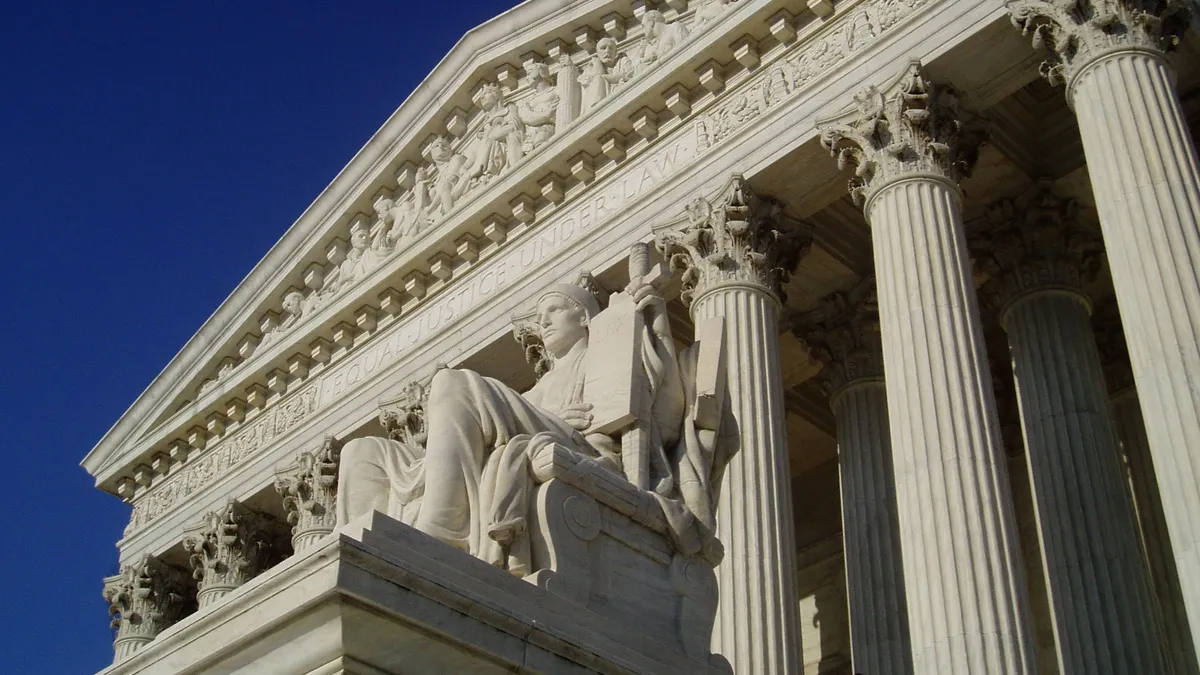Dive Brief:
-
The Supreme Court will hear oral arguments March 3 in a case that challenges the constitutionality of the Consumer Financial Protection Bureau (CFPB), according to the high court's calendar. The court agreed to take the case in October.
-
In Seila Law v. CFPB, a California debt collection law firm argues the CFPB's leadership structure is unconstitutional, and therefore it should not have to comply with a civil investigative demand from the bureau.
-
At issue is a provision in the Dodd-Frank Act that allows the president to only fire the director of the bureau "for cause." The Justice Department has criticized the clause, filing a brief in September urging the high court to take the case, and CFPB Director Kathy Kraninger has since aligned with that view.
Dive Insight:
The Seila Law case has knocked around the lower court system for more than two years.
The U.S. Court of Appeals for the Ninth Circuit rejected the law firm's claims against the CFPB in May. And the law firm filed a petition with the Supreme Court the following month.
But the case gathered steam in September, when Solicitor General Noel Francisco asked the high court to weigh in. Concurrently, Kraninger's public stance on the bureau's leadership structure seemed to pivot.
During her nomination process last year, Kraninger told a Senate panel "the ultimate question of the constitutionality of the Bureau's structure is one for Congress or the courts to resolve."
But in his September brief, Francisco wrote that Kraninger "has reconsidered that position."
Kraninger reassured lawmakers that despite her stance, the bureau would remain "fully operative."
"My determination that the for-cause removal provision is unconstitutional does not affect my commitment to fulfilling the Bureau's statutory responsibilities," she wrote.
In an email to staff, Kraninger clarified her statement.
"Litigation over [the CFPB's constitutionality] has caused significant delays to some of our enforcement and regulatory actions," she said. "I believe this dynamic will not change until the constitutional question is resolved either by Congress or the Supreme Court."
This won't be the first time a Supreme Court justice has weighed in on a case examining CFPB constitutionality. While sitting on a three-judge panel of the U.S. Court of Appeals for the D.C. Circuit in 2016, now-Justice Brett Kavanaugh wrote in PHH Corp. v. CFPB that "other than the President, the Director of the CFPB is the single most powerful official in the entire U.S. Government, at least when measured in terms of unilateral power." He added that the director's powers could be limited while keeping the bureau intact. The full D.C. Circuit court upheld the CFPB's structure in 2018.
Because Kraninger has sided with Seila Law, the Supreme Court appointed former U.S. Solicitor General Paul Clement to defend the CFPB, according to American Banker.
The high court's ruling in the CFPB case may affect other federal agencies with a single-director structure, such as the Federal Housing Finance Agency.












